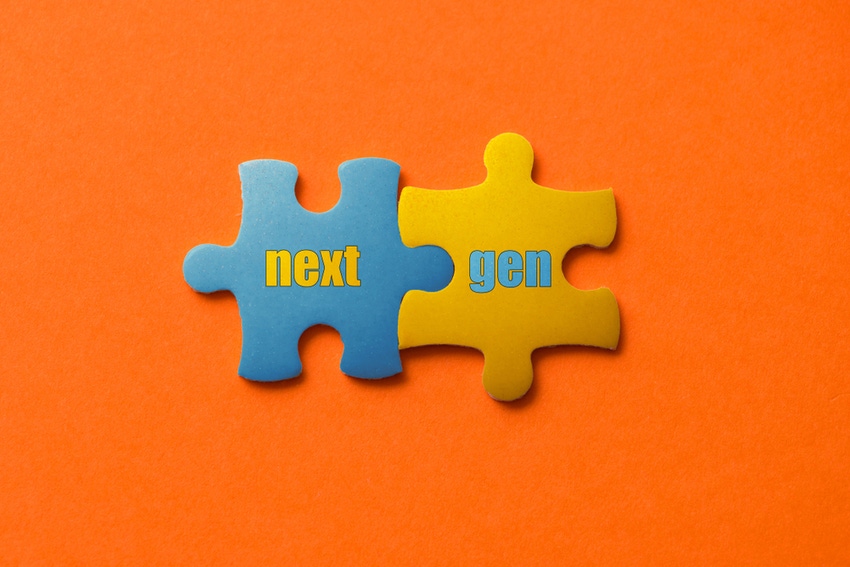Next-gen buyers were born into a digital world. How do they differ from traditional IT buyers? And how are they alike?

Channel partners are dealing with a steadily increasing number of next-gen buyers, those individuals born into a digital world. Digital transformation has changed the way business is done — and that includes marketing. The majority of today’s buyers come to the table having used the internet for research, reviews and recommendations. They’re not looking for a product; they’re looking for a solution to a problem. And they want that solution wrapped up in an outstanding customer experience.
So how do more traditional buyers differ from next-gen buyers? And for that matter, how are they alike?

Bergamo Marketing Group’s Allison Bergamo

LiveVox’s Nick Bandy
The session, All-Star Marketing Panel: Drive Growth and Customer Engagement with Next-Gen Marketing, will provide insights on adapting traditional marketing techniques and developing strategies that will engage next-gen buyers. The session, presented Tuesday, April 12, during the Channel Partners Conference & Expo, features a quartet of – as the session name indicates – marketing all-stars: Allison Bergamo, principal of Bergamo Marketing Group; Nick Bandy, CMO of LiveVox; Jamie Domenici, CMO of GoTo (formerly LogMeIn); and Brian Gilman, CMO of IntelePeer.

IntelePeer’s Brian Gilman

GoTo’s Jamie Domenici
In the following Q&A, some of our panelists offer up thoughts on next-gen marketing and what attendees can expect from their session.
Channel Futures: There’s a lot of debate on what constitutes “next-gen.” How would you define it?
Allison Bergamo: Next-gen marketing is the ability to maximize and leverage your resources across the organization to drive growth and deliver outstanding customer experiences at every touch point. Successful next-gen marketing initiatives deliver personalized customer experiences that leverage a cohesive set of customer data across all interactions — both digital and human-led, provide always-on content backed by customer insights and augmented with AI tools and are executed with an ROI mindset.
Nick Bandy: To me, next-gen marketing is defined by using well-integrated technology, data, and automation tools across a broad spectrum of channels to create relevant, timely and meaningful conversations with prospects and customers.
Jamie Domenici: I think it’s just quite literally next generation. Meaning the technology that will be embraced as “business as usual” for our next generation. A smartphone is basically part of the furniture for kids today — which was not the case a generation ago.
CF: What makes next-gen marketing unique?
NB: Beyond the technology itself, it’s the evolution from personalization to contextualization. The ability to move beyond simply dropping first names into pre-defined email templates and landing pages or identifying site visitors and following them around the web. Instead, leveraging a range of available signals to contextualize content and an overall experience.
JD: It’s getting ahead of the trend and getting out of saying the same thing everyone else is. How do you position your product to capture the interest and mindshare of that next group of technology leaders?
CF: What do you think is the one most important thing to keep in mind when developing a next-gen marketing strategy?
AB: B2B customers are “self-learners” who value their own research as much as the information a supplier provides. Sales and marketing teams need to serve as “sense makers,” helping customers understand all the information they’ve gathered and guiding them in their buying decisions.
NB: The most important thing to remember is that while technology, data, automation and new channels can be effective tools for creating streamlined, contextual communications with prospects/customers, the fundamentals of brand marketing are still the foundation of any good plan.
JD: It has to be your audience – specifically your target audience. Are you speaking to them where and when and how it makes sense in terms of how they are consuming information? Is your information something they will want to interact with, or will they just tune you out? Creativity is key.
CF: Do you think channel partners should adapt a next-gen marketing strategy across the board? Do you think all buyers would be open to it?
AB: Channel partners should evaluate their current marketing initiatives through both ROI and CX lenses. While the pandemic accelerated…
… a digital-first, B2B buying trend, companies need to balance digital customer engagement with human interactions at key moments in the buying journey.
JD: It is definitely something channel partners should be thinking about and starting to plan for but there is a balance between the traditional IT and next-gen audiences that we need to be mindful of.
CF: Allison, what changes have you seen in buyer behavior over the last five years?
AB: B2B buyers are spending less time with sales reps. Only 17% of B2B buying journeys are spent with sales reps. In fact, 44% of millennial B2B buyers favor digital channels and prefer to have no interaction with sales reps. As baby boomers retire and millennials (the first digital natives) assume decision-making roles, a digital-first buying experience will become the norm.
And as I mentioned earlier, B2B customers are self-learners. However, they’re overwhelmed with the amount of quality information they consume. Sellers must pivot from serving as information sources to helping customers make sense out of everything they’re learning, irrespective of the source. Per Gartner, nearly half of B2B customers found supplier information trustworthy and simultaneously contradictory which reduces their decision confidence. Contradictory information results in lower customer confidence, which can reduce the likelihood of a customer making a significant purchase.
CF: Nick, LiveVox describes itself as a “next-generation contact center platform.” What makes it next-gen?
NB: It’s a cloud-based platform that’s easy to implement and easy to optimize. The platform seamlessly combines omnichannel communications, a native CRM, AI and WEM. Our native CRM uniquely facilitates seamless customer journeys, agent workflows and data flows. It offers an availability of robust, out-of-the-box analytics, including speech analytics, And it features an architecture that enables us to easily continue incorporating new functionality, technologies and partners so that our platform continues to evolve into what customers want now and will want “next.”
CF: Jamie, you just moved from Salesforce to GoTo. Salesforce brought SaaS into the market in 1999. GoTo is only four years younger. What makes it next gen?
JD: With the re-brand to GoTo we are actively transitioning ourselves into a streamlined global brand presence that will resonate with current IT execs as well as the next generation, the next-gen audience. Our products are solving customer challenges that are very top of mind and important to next-gen IT consumers. Working from anywhere/hybrid work is here to stay — and we’re ready!
About the Author(s)
You May Also Like


